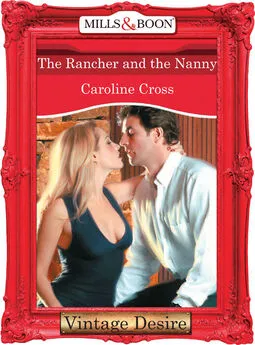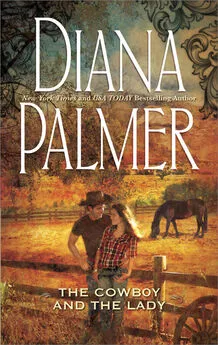John Creasey - The Toff and The Lady
- Название:The Toff and The Lady
- Автор:
- Жанр:
- Издательство:неизвестно
- Год:неизвестен
- ISBN:нет данных
- Рейтинг:
- Избранное:Добавить в избранное
-
Отзывы:
-
Ваша оценка:
John Creasey - The Toff and The Lady краткое содержание
The Toff and The Lady - читать онлайн бесплатно полную версию (весь текст целиком)
Интервал:
Закладка:
“It makes more sense than some suggestions I’ve heard,” said Rollison. “Now, listen to me. There is danger, and there is only one way of avoiding it—by having the police in the house. You have a good excuse—the attempt to kill your mother.”
“We can’t” began Gwen.
“You must,” said Rollison. “Surely you’ve the wit to see that the police will puzzle it out before they’ve finished. Even if it drags on for a few weeks, until they catch Pomeroy. It will be far better to tell them yourself.”
She said: “I can’t do it.” She was distraught.
“Why not, Gwen?” he asked, gently.
“Because I am afraid for father!” Her voice rose. “I don’t know where he is, but I think Pomeroy does; I think that he has been taken away so that they can do what they like with us! If you could find him, if you could be sure that he is in no danger I would tell the police everything, but until then I can do nothing— nothing:
“All right,” Rollison said. “I’ll find him for you. But you may not like it when it’s done.”
“What do you mean?” she flashed.
“Haven’t you always been afraid that he is a willing party to all that has happened?” asked Rollison, and as Gwen stared at him in utter dismay, he added: “It’s quite likely that he is, you know. Do you still want him found before the police are told anything?”
“Yes,” she said. “But—I don’t think you can find him.”
“I think I can find him in half an hour,” said Rollison. “In fact in less—I can walk to the nursing home in twenty minutes.”
For a moment she looked as if she did not know what he meant. Then she backed away, staring at him with horror. She fumbled in a pocket in her skirt, and Rollison watched her narrowly, not alarmed for himself but afraid for her. She took out a box of matches and toyed with it. At last she tossed it on to a table, and put her hand into her pocket again. In her eyes was a wild look, and although she was silent she was obviously beside herself.
“I shouldn’t do that,” said Rollison.
He reached her in a stride, and gripped her wrist. She had started to take her hand from her pocket, and he saw the small automatic which she held. He pulled her arm up a little, and then, twisting her wrist, he made her let go. The gun dropped. She began to struggle, and he released her wrist and held her arms near the shoulders, tightly enough to hurt and to deny her any freedom of movement. Her face was distorted and her eyes were wild. He did not speak as he stared at her, trying to will her to give up the struggle.
Footsteps sounded in the hall, the front door opened, and there came a murmur of voices.
CHAPTER SEVENTEEN
HIGH TENSION
ROLLISON could feel Gwendoline’s body quivering. He relaxed his pressure slightly, seeing that her lips were also quivering and the wildness had faded from her eyes.
There was a tap at the door, and after a pause:
“Wait, please,” said Gwendoline, in an unsteady voice.
“It is Dr. Renfrew, Miss Gwendoline,” said Farrow.
“Ask him to see my mother first,” she answered.
There was a pause, but no sound of receding footsteps, and then Renfrew spoke in an anxious voice.
“Are you all right, Gwen?”
“Give me just a few minutes,” Gwendoline said, “I’ll come upstairs then.”
“All right,” Renfrew sounded reluctant, but the welcome noise of footsteps followed.
Gwendoline opened her lips, but Rollison moved away from her towards the door. She turned and looked out of the window, standing quite still, the shaking fit still on her. Rollison reached the door without making a sound, and then pulled it abruptly open.
Farrow backed away from the door, turning quickly on his heel. When he reached the door leading to the domestic quarters he looked round, but averted his gaze when he saw Rollison staring after him, Rollison turned back into the room, closed the door, and stepped to Gwendoline, who took out a handkerchief and began to blow her nose.
“What can I say?” she said hoarsely.
“Say nothing,” said Rollison. He stooped down and picked up the gun and held it out to her.
She flinched. “I don’t want it!”
He put it into his pocket without a word, but the fact that he had offered it to her would give her considerable psychological stimulus. He gave her a cigarette, and they lit up.
“Thank God it was you,” she said.
He smiled. “You see, I do sometimes turn up at the right moment!”
“I’ve behaved like a spiteful, venomous, murderous”
“Wildcat,” Rollison completed for her. “Daughter stirred to fury to save her father—it’s a common attitude in reverse. And people do all manner of strange things when they’re overwrought, as you’ve been overwrought during the past few weeks. Don’t exaggerate it, Gwen, and don’t think that I shall remember it against you! It must have been hard to keep going while believing that David was deliberately aiding and abetting crime.”
“It is hellish !” she said, her voice a-quiver.
“And it may be quite unjustified,” said Rollison. “What made you think so badly of David?”
“Everything—points that way.”
“Everything being generally known, or including something you haven’t yet told me?”
“I’ve told you everything,” Gwendoline assured him. “Rolly, please don’t try to soften it for me. I know you think the same, and I expect the police do. I’ve been trying to fool myself, trying to believe that it would not occur to anyone else, but I know it’s useless. I’ve wanted to believe the police are fools but I really know better.” She took a step towards him. “Do they suspect him yet?”
“They haven’t told me so,” said Rollison, “but they’ve kept a lot to themselves, and I can’t blame them for that. You’re wrong though, I don’t suspect David—any more than I suspect anyone whose part I don’t yet fully understand. My lost lady, for instance.”
“You’re really taken by her, aren’t you?” For the first time she spoke of the Lady of Lost Memory without bitterness.
If he were to gain her confidence, she must believe he was being wholly frank with her. So Rollison said: “Yes, Gwen, lam.”
Her eyes softened, and she touched his arm.
“I hope you’re right about her,” she conceded.
“Why have you been so set against her?”
“I’ve told you,” Gwen said, “except—well, I suppose you’d better know this. One day when I went into David’s room I found a letter which had slipped behind the bed. I shouldn’t have read it, of course, but the first word was “Darling” and it wasn’t in Hilda’s handwriting. It was—a love letter. It was written without any restraint, it proved that they had known each other for a long time—for years, Rolly. That, with David!”
Rollison said, slowly: “Was it signed?”
“Yes. Lila.”
“I see,” said Rollison.
In his mind’s eye there was a picture of David Barrington-Ley, that wiry whippet of a man, good-looking in an attractive way. He was a man with whom many women might fall in love—and yet something rang false about the idea of the Lady of Lost Memory being in love with David, something rang as false about the idea of his being in love with her.
“It’s quite true,” said Gwendoline, gently. “I can show you the letter. I’ve kept it for several weeks. Would you like to see it?”
After a pause, Rollison said: Yes, of course, it may give more information. I’d like to keep it for a while. Was there an address?”
“It was headed New York, and dated July.”
“She was there in July,” said Rollison. “What made you connect Lila with the woman you saw at the office?”
“On the telephone, Pomeroy talked of her sometimes as Lila, and the Countess at others.”
“I see,” said Rollison, and then Gwen took the letter out of her handbag and handed it to him. It was deep blue paper, of good quality. He put it into his pocket with a word of thanks, and tried to forget it, but the tension which had possessed Gwendoline transferred itself to him. It was difficult to be dispassionate and detached, hard to think, to judge what questions to ask.
“Have you really told me every reason for suspecting David?” he asked at last.
“Yes,” she said, “except the little indications, the trivial things one can’t put into words. He has behaved strangely in some ways, but in others he’s been as he always is when he’s got a big project in hand. He isn’t exactly absent-minded, but you can always tell that he’s really thinking about something else—do you know what I mean?”
“I know,” said Rollison.
“He isn’t a man to take kindly to blackmail.” said Gwendoline, “and I came to the conclusion that either Pomeroy was blackmailing him, or else everything was being done with his free consent. They’re quite friendly, too—Pom and David to each other. David friendly with a little fat louse like that!”
“Does Hilda know?”
“She does not !” said Gwen, emphatically. “That’s been one of my fears, that she would find out. There isn’t any need to tell her, is there?”
“None yet, at all events,” said Rollison. “I’m not even sure that you’re right.”
“I think you’re just being kind. Do you really think he’s at the nursing home?”
“Yes,” said Rollison. “There isn’t a better hiding-place, you know. Now you’d better see Dr. Andrew, or he’ll come down and accuse me of dallying with your affections.” He smiled. “Fond of Andrew?”
“Desperately.”
“Does he know what you suspect about David?”
“Yes—but no one else does.”
“I’d like a few words with him,” said Rollison.
“Of course,” said Gwendoline. “I’ll get him to come down.”
“I’d like to see him alone,” said Rollison, “before he is told what I know. Do you mind?”
“All right,” said Gwendoline. She moved towards the door, and when she drew level with him she paused and touched his arm. “Rolly,” she said, “I feel better than I have for weeks! It’s hard to say thanks.”
“Don’t even try,” said Rollison.
“I’m sorry about that letter,” she said, and then hurried out. There was more spring in her step.
Rollison sat down in an easy chair and lit a cigarette. The need in this case, as in so many others, was to disentangle the human emotions which played havoc with logic and often made black seem white. In the past he had not needed to worry about his own. Now he was defying logic and perhaps seeing black as white, but even with the letter in his pocket he could not convince himself that he was wrong about the Lady of Lost Memory.
He was sitting with his eyes closed when Renfrew came in.
“Why, hallo,” Rollison greeted, jumping up at once. He smiled at the tall, lithe, dark doctor, who seemed a little anxious. “How is Mrs. Barrington-Ley?”
“She’ll be all right,” said Renfrew.
“Gwen says she had a heart attack.”
“That’s right.”
Rollison looked at him steadily, and although the other met his gaze, he seemed a little nervous. Obviously he expected the diagnosis to be challenged, but Rollison tried another tack.
“Is photography a hobby of yours?” he asked, lightly.
“I do a bit,” said Renfrew.
“And do it well. I fancy,” said Rollison. “When did you take the photograph of Lila, Countess Hollern? And why did you send me a print?”
Renfrew did not move and tried not to show dismay, but he did not wholly succeed, and Rollison smiled, glad now to have his thoughts running more freely, the problem gaining ascendancy in his mind.
Читать дальшеИнтервал:
Закладка:










